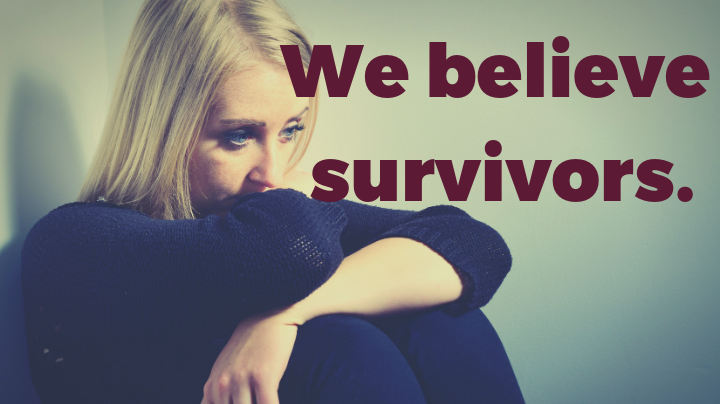
Sexual Assault Prevention Month in Rural Communities
May is Sexual Assault Prevention Month in Ontario. Although we would definitely be educating ourselves every month of the year, we take particular notice during May.
With the rise of the #MeToo and #TimesUp movements, our society has become more aware, and more willing to talk about sexual assault, it’s root causes and the prevalence with which it happens. One in three women will be sexually assaulted in their lifetime. We’re going to repeat that. ONE IN THREE. Here at WRRC, we’re going to go with a big nope on that one. It is so unacceptable that so many women have to deal with this violence. We hope you’ll join us in our fight to eradicate sexual violence not just from our community, but around the world.
As a rural resource centre for women, we often have an interesting perspective on what sexual assault and sexual violence looks like for women. Sexual violence and domestic violence intersect. Women who have been sexually assaulted face incredible challenges when they live in a rural setting. For starters, the geographical isolation that sometimes comes with living in rural areas is a huge barrier. If you call the police – response times can vary. When there’s no public transportation and you don’t have the resources for a car or a cab, getting the supports you need can be impossible.
And speaking of supports, these are often limited in the rural setting. This means survivors have further to travel to access what they need, often in bigger, urban centres. Rural internet service can also be spotty, so even being able to find out and research what resources are out there can be a challenge.
Of course, there is also the social stigma that women face if they should ever think about reporting the assault. While that stigma certainly isn’t unique to the rural context, it can be particularly acute. If you grew up in a small town, you know exactly what we’re talking about. Everybody knows everybody else, and privacy – especially around sensitive topics, just isn’t a reality. Let’s say you do decide to report. On the local police force is your dad’s best friend. The nurse in the emergency room? She’s the mother of the person who did this to you. The judge in your case is the dad of one of your best friends. See how this would get complicated real fast?
“More particular to rural women, these barriers may more specifically include stigma, self-blame, no anonymity, fear of the attacker, lack of financial support, no police support, no telephone, no transportation, and lack of trust in law enforcement.”
Here’s another interesting dynamic that plays out in rural contexts. Often in rural communities, there is a sense that we are “safer” than the big, scary urban centres. There’s a belief that there is less crime, because everyone knows each other. Of course, that’s not actually accurate, at least not when it comes to sexual assault. In fact, some studies show it’s actually higher in rural communities, although the low reporting rates of all sexual assaults make this difficult to track. One study (Rural-Info-Packet-v2-FINAL-UPLOAD-12.28.10) has commented the “Not in My Town” attitude that sometimes crops up in rural communities is particularly problematic for sexual assault survivors:
“As rural communities are close-knit, they can become polarized over a reported sexual assault, especially when the alleged perpetrator is someone they know. Entire communities can become divided over the “guilt” and “innocence” of the alleged perpetrator.”
So this “everybody knows everybody” situation pops up in different, and complex ways that would all impact on the survivor.
What can you do to help?
There are really lots of things you can do, but some of the most important have to do with important conversations that need to be had.
- Challenge sexual assault myths and stereotypes when you hear them (and when it’s safe to do so)
- Believe and supports survivors
- Educate yourself about sexual assault and why it happens (good start with reading this blog!)
- Volunteer at organizations that support survivors (like Anova or WRRC)
- Donate to those same organizations!
For more information, you can also give us a call anytime. 519-246-1526.
back

